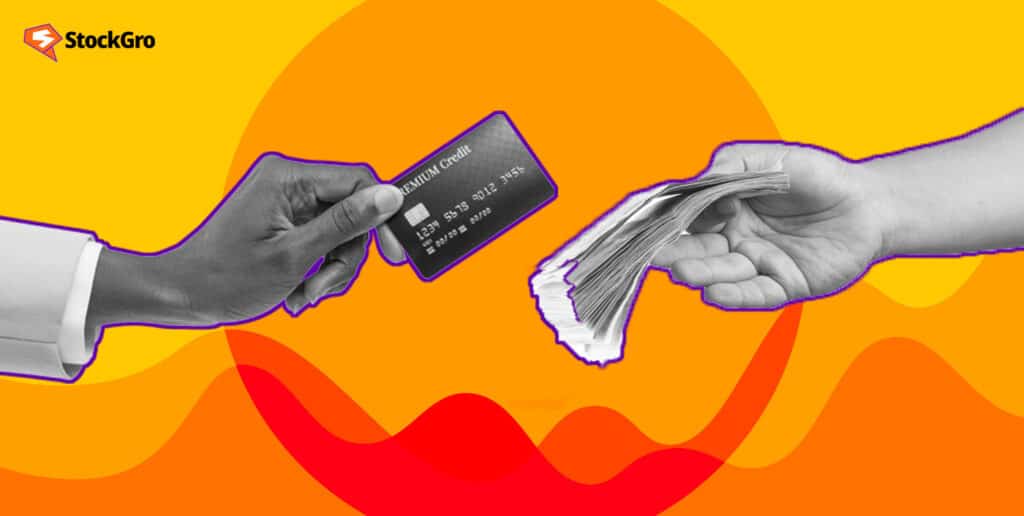
Have you noticed banks and other lending institutions denying loans because of a low credit score? If yes, you must have also wondered how they came up with the credit score. Who prepares the credit report? Why do banks rely on it? If you have these questions, this article is for you.
Today’s blog aims to take you through the concept of credit reports in detail and its role in the lending business.
What is a credit report?
To put it simply, a credit report is a report containing an entity’s credit information. It is available for individuals, businesses and all other entities. The report is prepared by authorised credit bureaus, who get access to loan details of borrowers from various financial institutions.
Also read: Everything you need to know about credit ratings
A report is prepared based on this information, consisting of the credit and repayment history, which helps in analysing the borrower’s creditworthiness. Lenders decide to approve and disburse loans to customers based on the credit history in the report.
Components of a credit report
- The list of loans borrowed by the customer across different financial institutions.
- The status of loans, including the details of active and closed loans.
- Repayment history and the regularity of current payments.
- Details of missed payments and defaults, if any.
- Recent enquiries for new loans.
- Credit score
What is a credit score and how is it calculated?
A credit score is a number assigned to each borrower based on the cleanliness of the credit report. The score is higher if the borrower has a good credit history. Otherwise, the score is low. CIBIL score, FICO score, etc., are some examples of credit scores.
Credit scores in India range from 300 to 900, with 300 being the lowest and 900 being the highest. Credit bureaus get regular information from financial institutions on loans of customers, based on which the score keeps varying. A specific weightage is assigned to significant aspects of loans to calculate the final credit score.
Some factors influencing credit scores are:
- Credit history: Number of loans, repayments, defaults, etc.
- Credit utilisation ratio: Suggests the amount one spends on a credit card against the card’s limit.
- Number of secured and unsecured loans
- Number of enquiries
- Number of loan approvals vs rejections
Credit reporting agencies in India
Also called credit bureaus, these agencies provide credit monitoring and reporting services. In India, such agencies are privately owned and thoroughly supervised by the Reserve Bank of India. These credit reporting agencies track the details of borrowers, organise them into reports, and monitor them closely to warn lenders of fraud and defaults.
India has four authorised credit bureaus. They are governed by the Credit Information Companies (Regulations) Act 2005 and are regulated by the RBI.
- CIBIL (Also called TransUnion CIBIL)
- Experian
- Equifax
- CRIF High Mark
Also read: Insert the blog on <Strategies for Overcoming Financial Anxiety>
How to access your credit report?
The simplest way is to access credit reports online. All the credit bureaus provide the facility to download these reports through their websites. According to RBI’s guidelines, every customer is eligible to download one free credit report from each of the bureaus every calendar year. Anything more than one is chargeable.
The policy of free reports varies from one country to another. For example, in the United States of America, the top three credit bureaus have established a common platform called the Annual Credit Report (annualcreditreport.com), through which customers receive three free reports per year.
How to handle a credit report dispute?
A credit report dispute is where the customer or borrower does not agree with the information on the credit report. Sometimes, due to errors, the credit report may have inaccurate or duplicate entries. A few other times, the borrower may have forgotten about a transaction on the credit report. In all such cases, the process of filing credit report disputes comes in handy.
Credit bureaus usually provide free services for resolving disputes. Most of them allow customers to raise queries on the website or fill out a form to get such confusion clarified. Alternatively, they may also have customer care numbers mentioned on their websites to help with dispute resolution.
An incorrect entry can affect one’s credit score and deprive them of credit facilities. Hence, frequent credit report checks are essential.
Tips to maintain a good credit score
While each bureau has a different standard to rate credit scores, anything around 700 is usually considered good. A good credit score indicates increased creditworthiness, making loan approvals easier.
Some simple practices are all it takes to maintain a good credit score:
- Do not default on your interest payments and principal repayment. This aspect has a significant bearing on your credit score, so always set reminders and pay them on time. Your ideal budget should include EMI payments as one of your top priorities.
- Keep a check on your credit utilisation ratio. Do not overspend using your credit card. It is suggested to use a credit card for emergencies and stick to the money you own while spending on other things.
- Stay away from multiple loans. Too many loans come across as negative in the credit report, impacting the credit score. Try closing one before you take another unless the requirement is urgent.
- Long-term loans are better than short-term ones, as the amount of interest per EMI is lower. This takes away the burden of paying interest and makes the process easier.
- Keep a regular check on your credit report to identify and rectify any incorrect entries affecting your credit score.
Also read: Credit history: What is it and why it matters?
Bottomline
A credit report is one of the key factors behind your loan approvals. Understanding its role and the different components covered in it helps borrowers maintain a clean credit report, which is essential to avail loans. Some basic controls can increase your creditworthiness significantly, so don’t forget to keep a tab on your loans.

